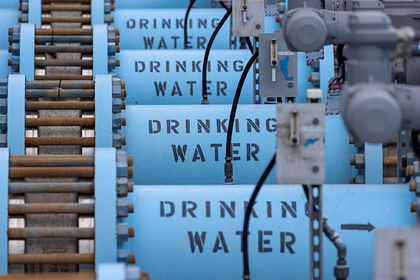WaterAid: Water Supply Got Insufficient Attention on COP26 
conference COP26, gathered in Glasgow to jointly search for ways to save the planet. The organization urged to make no less efforts to solve the problem than for the energy transition, according to The Guardian.
WaterAid Executive Director Tim Wainwright said that the climate crisis primarily affects human well-being through changes in water balance – whether it be floods that pollute fresh water and destroy crops, or, conversely, droughts that dry out sources – and about it more needs to be said. A 2016 study found that two-thirds of the world's population (four billion people) face water shortages. At the same time, WaterAid analysis showed that in 2020, solving water supply problems accounted for less than three percent of global funding for combating the effects of climate change, which is a flaw in the investment plan. Wainwright noted that the poorest people are hardest hit in countries that have contributed least to the climate crisis, and investment in water management should be focused in those areas.
Slowing down change was the main agenda of the Glasgow summit, he said. climate, but we must not forget about measures to adapt to the irreversible consequences that have already overtaken humanity. “[Lack of access to water] is already killing people. It's unthinkable to do nothing about it. The world must accept this challenge, ”Wainwright said, adding that the water crisis must not only be kept in mind, but real urgent action must be taken to resolve it, as is already being done on the transition to renewable energy sources.
Earlier, British Prime Minister Boris Johnson called on world leaders to “push all levers” to save the Earth. The UK is already experiencing the water-borne impacts of climate change. The country's environmental agency warned of an imminent increase in the number of floods and droughts in England and urged to adapt to new conditions, including a possible shortage of drinking water.